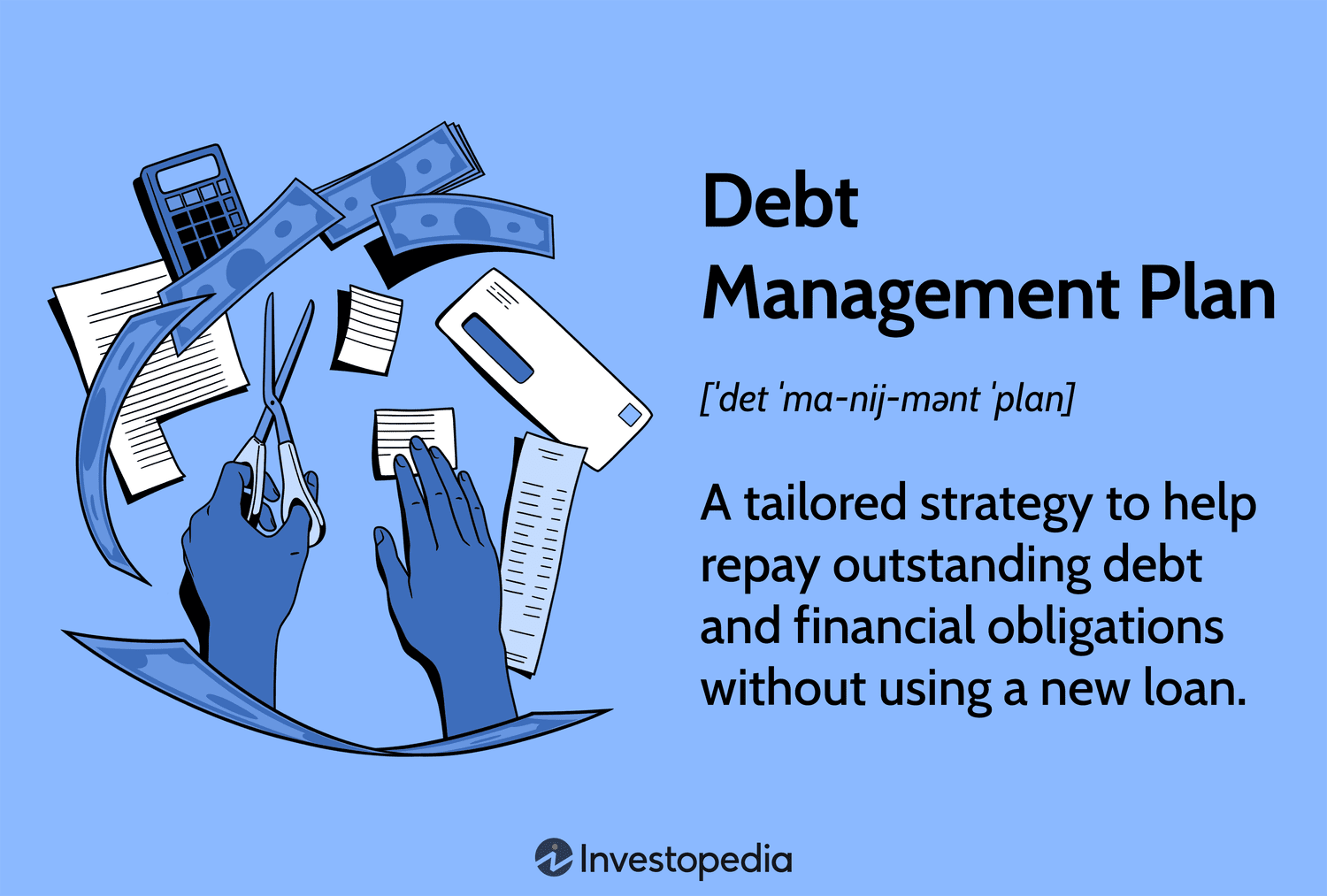What is a Debt Management Plan?
A Debt Management Plan is a formal agreement between a debtor and their creditors. It is typically facilitated by a credit counseling agency and involves negotiating reduced interest rates and setting up a manageable repayment schedule. The aim is to consolidate multiple debts into a single monthly payment, making it easier for the debtor to manage their finances.
How Does a Debt Management Plan Work?
A DMP is typically arranged through a nonprofit credit counseling agency. After reviewing your income, expenses, and debts, the counselor negotiates with creditors to reduce interest rates and possibly waive late fees or penalties. Rather than making multiple payments to different creditors, you send one monthly payment to the agency, which distributes the funds accordingly.
This simplified payment structure not only makes debt easier to manage, but also ensures that debts are repaid on time—helping you rebuild trust with creditors. Most plans are designed to be completed in three to five years, during which time you may be required to close existing credit accounts.
Pros and Cons of Debt Management Plans
| Pros | Cons |
|---|---|
| Reduces monthly payments | May affect credit score |
| Lowers interest rates | Requires discipline |
| Waives late fees | Not suitable for secured debts |
| Consolidates payments | May take several years |
Is a DMP Right for You?
A DMP is ideal for individuals with consistent income and a willingness to follow a structured repayment plan. It is not a one-size-fits-all solution, however. People with secured debt (like car loans or mortgages) won’t benefit, and those facing extreme hardship may need to consider more aggressive solutions like debt settlement or bankruptcy.
If you’re falling behind on credit card payments, being harassed by collectors, or struggling to manage multiple due dates, a DMP could provide the structure you need to regain control of your finances.
Steps to Get Started
- Find a certified credit counseling agency – Look for nonprofits accredited by organizations like the NFCC or FCAA.
- Complete a financial review – Share your income, monthly expenses, and a full list of debts.
- Receive a customized plan – Your counselor will suggest a monthly payment plan that fits your budget.
- Enroll and start paying – Once approved, you’ll begin making your monthly payment to the agency.
Be sure to read all terms and understand any service fees involved.
Additional Tips for Success
- Stay disciplined: A DMP only works if you stick to the agreed-upon payment schedule.
- Build savings: Even while repaying debt, try to save small amounts monthly to avoid new borrowing during emergencies.
- Communicate changes: If your financial situation changes, notify your credit counselor right away.
Alternatives Worth Considering
While DMPs offer structured repayment, they aren't your only option:
- Debt Consolidation Loans can combine debts into one loan with a single interest rate.
- Debt Settlement involves negotiating to pay less than the total owed, but often hurts your credit.
- Bankruptcy is a legal solution for severe debt, but can have long-term financial consequences.
Each option comes with benefits and risks, so weigh them carefully.
Final Thoughts
A Debt Management Plan is a powerful tool for anyone struggling with high-interest unsecured debt. It combines structure with support, helping you gradually reduce what you owe while avoiding the long-term damage of bankruptcy. If you’re committed to getting out of debt, it’s worth speaking with a nonprofit credit counselor to see if a DMP aligns with your financial goals.
References







